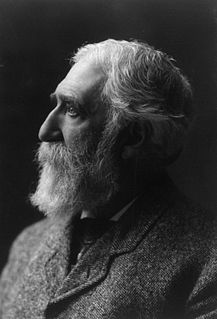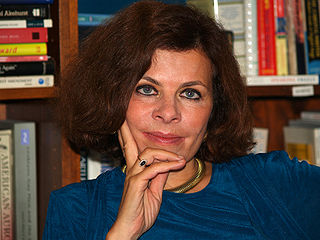A Quote by David Hume
The greatest crimes have been found, in many instances, to be compatible with a superstitious piety and devotion; hence it is justly regarded as unsafe to draw any inference in favor of a man's morals, from the fervor or strictness of his religious exercises, even though he himself believe them sincere.
Related Quotes
It is only by fidelity in little things that the grace of true love to God can be sustained, and distinguished from a passing fervor of spirit. . . . No one can well believe that our piety is sincere, when our behavior is lax and irregular in its little details. What probability is there that we should not hesitate to make the greatest sacrifices, when we shrink from the smallest?
The religious geniuses of all ages have been distinguished by this kind of religious feeling, which knows no dogma and no God conceived in man's image; so that there can be no church whose central teachings are based on it. Hence it is precisely among the heretics of every age that we find men who were filled with this highest kind of religious feeling and were in many cases regarded by their contemporaries as atheists, sometimes also as saints. Looked at in this light, men like Democritus, Francis of Assisi, and Spinoza are closely akin to one another.
When a teacher of the future comes to point out to the youth of America how the highest rewards of intellect and devotion can be gained, he may say to them, not by subtlety and intrigue; not by wire pulling and demagoguery; not by the arts of popularity; not by skill and shiftiness in following expediency; but by being firm in devotion to the principles of manhood and the application of morals and the courage of righteousness in the public life of our country; by being a man without guile and without fear, without selfishness, and with devotion to duty, devotion to his country.
Strange a God who mouths Golden Rules and forgiveness, then invented hell; who mouths morals to other people and has none Himself; who frowns upon crimes yet commits them all; who created man without invitation, then tries to shuffle the responsibility for man's acts upon man, instead of honorably placing it where it belongs, upon Himself; and finally with altogether divine obtuseness, invites this poor, abused slave to worship Him!
That same night, I wrote my first short story. It took me thirty minutes. It was a dark little tale about a man who found a magic cup and learned that if he wept into the cup, his tears turned into pearls. But even though he had always been poor, he was a happy man and rarely shed a tear. So he found ways to make himself sad so that his tears could make him rich. As the pearls piled up, so did his greed grow. The story ended with the man sitting on a mountain of pearls, knife in hand, weeping helplessly into the cup with his beloved wife's slain body in his arms.
The following sentiments are illustrative of the philosophy of the Talmud: "Love peace and pursue it at any cost." ... "Remember it is better to be persecuted than to persecute." ... "Be not prone to anger." ... "He who giveth alms in secret is greater than Moses himself." ... "It is better to utter a short prayer with devotion than a long one without fervor." ... "He who having but one piece of bread in his basket, and says, What shall I eat tomorrow? is a man of little faith."
I believe that the unity of man as opposed to other living things derives from the fact that man is the conscious life of himself. Man is conscious of himself, of his future, which is
death, of his smallness, of his impotence; he is aware of others as others; man is in nature, subject to its laws even if he transcends it with his thought.
No other work has more often been blamed for more heinous crimes by the perpetrators of such crimes. The Bible has been named as the instigating or justifying factor for many individual and mass crimes, ranging from the religious wars, inquisitions, witch burnings, and pogroms of earlier eras to systematic child abuse and ritual murders today.
Muhammad Ali was unquestionably one of the greatest boxers of the 20th century and a sincere advocate for his religious beliefs. In his life, he defeated the best professional boxers of his era, some of them more than once, which meant he was easily forgiven the excesses of his ringside braggadocio.








































